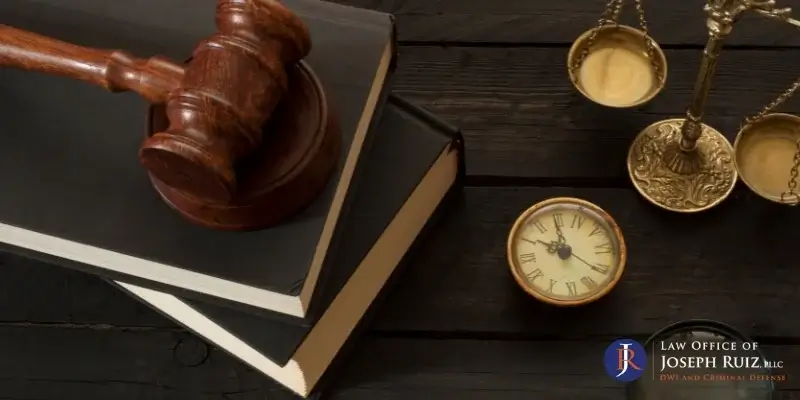Schedule a Consultation
College Station Manslaughter Lawyer


College Station Manslaughter Attorney
Manslaughter is a serious crime, and the accusation of such a crime can impact your personal and professional reputations. If you’re facing charges of having killed another person due to recklessness or an intentional act of malfeasance, you need to hire a College Station manslaughter lawyer who can help you understand the charges being brought against you and construct an effective defense against them.
The Law Office of Joseph Ruiz, PLLC, has successfully defended clients facing manslaughter charges in many cases. In one recent case, we were able to have a charge of intoxication manslaughter, a second-degree felony, reduced to a misdemeanor DWI. We know how to leverage our knowledge of manslaughter laws and the criminal justice system to obtain positive results for our criminal defense clients, and we can help you, too.
Murder vs. Manslaughter Charges
It’s important to note that there is a difference between murder and manslaughter, even if it isn’t always crystal clear. As a rule, murder charges get brought when there is a premeditated intention to kill. Manslaughter cases do not involve premeditated intent, even if the person being accused intended to kill in the moment.
In most places, manslaughter charges are divided into voluntary vs. involuntary manslaughter. Although Texas has a different protocol for charges of manslaughter that differentiates between intoxication and vehicular manslaughter, but not voluntary and involuntary manslaughter, the difference is still relevant. In Texas, the circumstances of the crime are considered when sentencing occurs, and intent to kill can be considered an aggravating factor.
Voluntary vs. Involuntary Manslaughter
When there is any question as to whether a crime should be considered manslaughter or murder, it’s usually because the case involves what’s generally known as voluntary manslaughter. In voluntary manslaughter cases, a person kills in the heat of passion when aroused by an active provocation.
Involuntary manslaughter occurs when a death results from a criminally negligent or reckless act, including the commission of a crime other than a felony. There is also some overlap between involuntary manslaughter and second-degree murder, in particular. If a person’s behavior demonstrates such an extreme disregard for human life and safety that a jury determines it to be comparable to premeditation to kill, the person responsible would be accused of murder.
Types of Manslaughter in Texas
Texas works a little differently than most states in that it doesn’t distinguish between voluntary and involuntary manslaughter. When your manslaughter case gets tried in the Brazos County District Courts, the judge or jury will consider intent in sentencing, but it won’t lead to a different charge. The only distinctions made in Texas are for:
- Vehicular manslaughter. This crime occurs when someone kills another person with their car due to negligence or reckless driving.
- Intoxication manslaughter. This crime occurs when someone kills another person because they are drunk or using drugs. DWIs generally fall under the purview of intoxication manslaughter rather than vehicular manslaughter, which has less severe penalties.
The type of manslaughter you’ve been accused of committing matters because it will impact how your attorney constructs your defense against the charges.
Hire a Manslaughter Lawyer
College Station is a relatively safe city, given its size. Violent crimes occur at a low rate of 1.69 per 1,000 residents, which is great news for locals. Texas also has a relatively low homicide rate of 7.1 per 100,000 people. However, manslaughter charges rarely involve intent to kill, and manslaughter cases can happen anywhere.
Intoxication manslaughter charges are particularly common in Texas. In Texas, more than 37% of the fatalities that occur on the road happen due to DWIs. These accidents are often considered a form of intoxication manslaughter. If you’ve been accused of intoxication or vehicular manslaughter, you need to hire a manslaughter lawyer right away. Having a skilled lawyer on your side can help you avoid the worst potential outcomes of your charges.
Case Result
Our client was facing a 20-year sentence after being charged with intoxication manslaughter. By reviewing the laboratory process and questioning the dependability of the blood analysis, we uncovered significant flaws in the State’s evidence. Before trial, prosecutors agreed to drop the charge down to a misdemeanor DWI with time served, leaving our client without a felony conviction and avoiding prison.
FAQs About College Station, TX Manslaughter Laws
What Are the Three Categories of Manslaughter?
The three categories of manslaughter in Texas are vehicular manslaughter, intoxication manslaughter, and all other types of manslaughter. Texas does not officially make a distinction between voluntary and involuntary manslaughter, as do many states. Instead, it combines the two into one charge with enhanced penalties in certain circumstances, as might be the case if you killed someone intentionally.
What Is the Most Common Type of Manslaughter in Texas?
The most common type of manslaughter in Texas is intoxication manslaughter. This crime occurs when someone kills another person due to their intoxication with drugs or alcohol. The potential manslaughter penalties for this type of charge can include lengthy prison terms and substantial fines. Intoxication manslaughter is generally punished more severely than other types.
How Is Intent Determined in a Manslaughter Case?
Intent is determined in a manslaughter case by a prosecutor’s ability to prove the defendant’s mental state when the killing took place. Manslaughter specifically involves a killing without the premeditated intent to cause death that defines murder. However, in cases of voluntary manslaughter, the intent to kill may still be present in the moment, as would be the case with a crime of passion.
Is Voluntary or Involuntary Manslaughter Worse?
Voluntary manslaughter is generally considered worse than involuntary manslaughter because it involves the intent to kill another person or cause them serious harm, even if that intention often manifests in the heat of passion. It’s important to note that Texas law does not differentiate between voluntary and involuntary manslaughter, instead defining other subtypes of manslaughter and assigning more serious penalties based on the circumstances of the crime.
College Station Manslaughter Lawyer
If you’re facing manslaughter charges, you don’t have to go it alone. You can work with a College Station manslaughter lawyer who can explain your charges, evaluate evidence and witness credibility, and come up with an effective strategy for your defense. The team here at the Law Office of Joseph Ruiz, PLLC, has a deep understanding of manslaughter laws and how to use them to obtain a positive outcome in your case. Contact us to schedule an initial consultation.
How can we help you
To get your free consultation started, please call
281-300-8695 or fill out the form below and
we will get back to you as soon as possible.
Schedule a Consultation





